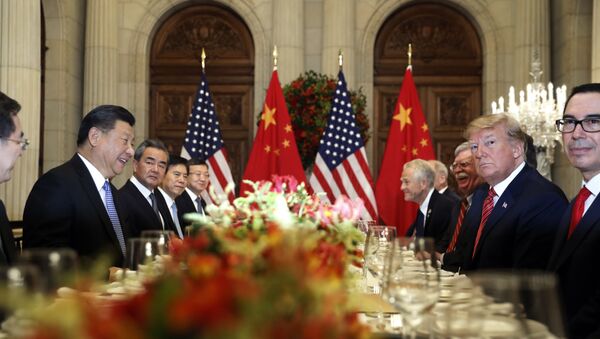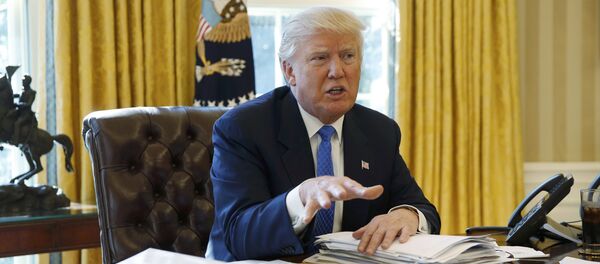Robert Lighthizer and US Treasury Secretary Steven Mnuchin had several phone calls with China's Vice Premier Liu He on the deal. Some key issues were discussed, but big differences still remain, according to US officials.
Meanwhile, some media reports suggest that the Chinese side cancelled Xi Jinping's meeting with US President Donald Trump at his Mar-a-Lago resort in Florida for a potential signing ceremony which was tentatively scheduled for the third decade of March. However, White House spokeswoman Sarah Huckabee Sanders said that Trump has yet to set a date for their meeting.
Chen Fengying, a senior economic researcher at the China Institutes of Contemporary International Relations told Sputnik that it is difficult to predict what concessions both sides could make for a future deal.
"The texts of the Chinese and American drafts of the future agreement have not been published, so it's hard to say where China will make concessions and where there will be no concessions. As of 3 May of last year, the US was not happy with, for example, the RMB exchange rate. We cannot yet judge whether there is a concession on this issue, since it is a subject of negotiations."
READ MORE: Dollar's End: Bright Future Awaits Yuan, But There's No Need to Hurry — Analyst
Commenting further on concessions, Fengying stated that they have made some already adding that this "can be seen in the current law on foreign investments, during the preparation and adoption of which the opinions of foreign investors, including the United States, were taken into account." Meanwhile, the Chinese expert said that he believed that this wasn't a concession noting that they "have made promises of a tactical or strategic nature to the United States."
Senators asked Robert Lighthizer if the United States would remove additional tariffs on Chinese imports before they had convincing evidence that China was complying with the agreement. The chief US trade negotiator refused to answer this question but said that the focus of the negotiation from the Chinese side is removing American tariffs. "If that is a concession, that is something that is under debate," the US trade representative said.
Views and opinions expressed in this article are those of the speaker and do not necessarily reflect those of Sputnik.





